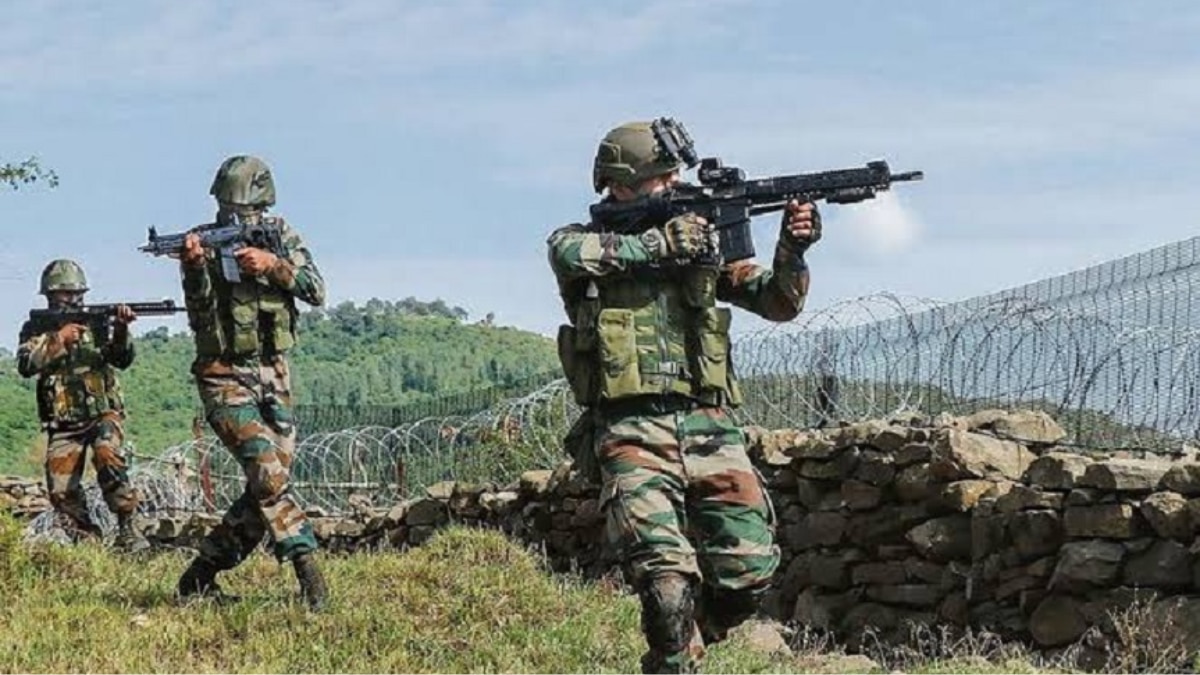
Pakistan, currently a non-permanent member of the powerful 15-nation Security Council, had requested for “closed consultations” on the situation.
The UN Security Council commenced closed-door consultations here on the situation between India and Pakistan, hours after Secretary General Antonio Guterres voiced concern over tensions between the nuclear-armed neighbours being “at their highest in years”.
Pakistan, currently a non-permanent member of the powerful 15-nation Security Council, had requested for “closed consultations” on the situation.
Greece, president of the Council for the month of May, scheduled the meeting for May 5 in the afternoon.
The closed-door meeting will not take place in the UNSC Chamber where Council members sit at the powerful horse-shoe table but in a consultations room next to the chamber.
Assistant Secretary-General for Middle East, Asia and the Pacific in the Departments of Political and Peacebuilding Affairs and Peace Operations Khaled Mohamed Khiari of Tunisia will brief the Council on behalf of both departments (DPPA and DPO).
Pakistan’s Permanent Representative to the United Nations Ambassador Asim Iftikhar Ahmad could brief reporters after the meeting.
Just hours before the closed consultations, Guterres voiced concern over tensions between India and Pakistan being at “their highest in years”, saying “it pains me to see relations reaching a boiling point”.
Guterres made remarks to the press from the UNSC stake-out Monday morning amid rising tensions between the two nuclear-armed neighbours following the April 22 Pahalgam terror attack in Jammu and Kashmir that killed 26 civilians, including a Nepali citizen.
Guterres said he understands the “raw feelings” following the “awful terror attack” in Pahalgam and reiterated his strong condemnation of that attack, extending his condolences to the families of the victims.
“Targeting civilians is unacceptable – and those responsible must be brought to justice through credible and lawful means,” he said.
Guterres stressed that it is essential – especially at this critical hour — to avoid a military confrontation that could easily spin out of control.
“Now is the time for maximum restraint and stepping back from the brink. That has been my message in my ongoing outreach with both countries. Make no mistake: A military solution is no solution,” the UN chief said.
He reiterated that he offers his good offices to both governments in the service of peace. “The United Nations stands ready to support any initiative that promotes de-escalation, diplomacy, and a renewed commitment to peace.” Apart from the five veto-wielding permanent members — China, France, Russia, UK and the US — the 10 non-permanent members in the Council are Algeria, Denmark, Greece, Guyana, Pakistan, Panama, South Korea, Sierra Leone, Slovenia and Somalia.
India’s former Permanent Representative to the UN Ambassador Syed Akbaruddin told PTI that no “consequential outcome” can be expected from “a discussion where a party to the conflict seeks to shape perceptions by using its membership of the Council. India will parry such Pakistani efforts”.
In August 2019, China had requested closed UNSC consultations to discuss India’s move to revoke the special status of Jammu and Kashmir.
That meeting had ended without any outcome or statement from the powerful 15-nation UN organ, dealing a huge snub to Pakistan’s efforts, backed by Beijing, to internationalise the Kashmir issue, which an overwhelming majority in the Council stressed is a bilateral matter between New Delhi and Islamabad.
Akbaruddin, who was India’s top diplomat to the UN headquarters in New York during the time, had said following the August 2019 meeting that India’s national position was and remains that matters related to Article 370 of the Indian Constitution “are entirely an internal matter of India. These have no external ramifications”.
On the UNSC closed consultations Monday, India’s former Permanent Representative to the UN Ambassador T S Tirumurti told PTI that “predictably, Pakistan has taken advantage of the dastardly terror act sponsored by them in Pahalgam to raise the bogey of a nuclear flare-up and agitate the issue of Jammu and Kashmir in the UN Security Council”.
“Fortunately, this will not receive traction with the P-5, with the exception of China, since they treat this as a bilateral matter between India and Pakistan,” he said.
Tirumurti added that even if UNSC member states do not usually prevent closed consultations if requested, no outcome is expected.
Tirumurti helmed India’s Permanent Mission to the UN from May 2020 to June 2022, during the country’s 2021-22 tenure in the Security Council as a non-permanent member.
In the weeks following the Pahalgam terror attack, External Affairs Minister S Jaishankar spoke with all Council members, with the exception of China and Pakistan.
In his calls, Jaishankar underlined that "its perpetrators, backers and planners must be brought to justice".
Jaishankar had a "good conversation" with Greek Foreign Minister George Gerapetritis and had “discussed the Pahalgam terrorist attack”.
India had welcomed Greece’s firm opposition to cross-border terrorism and “our Strategic Partnership reflects the depth of our ties”, Jaishankar had said.
Last week, Guterres reiterated his condemnation of the Pahalgam terror attack in a call with Jaishankar, noting the importance of pursuing justice and accountability for these attacks through lawful means while voicing deep concern at rising tensions between India and Pakistan.
Guterres spoke separately with Jaishankar and Pakistan Prime Minister Shehbaz Sharif.
"In his phone calls, the Secretary General reiterated his strong condemnation of the April 22 terrorist attack that took place in Jammu and Kashmir. The Secretary General noted the importance of pursuing justice and accountability for these attacks through lawful means,” Stéphane Dujarric, Spokesman for the Secretary-General, had said.
(This story is published as part of the auto-generated syndicate wire feed. No editing has been done in the headline or the body by ABP Live.)




.jpg)



0 Comments